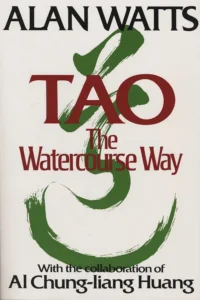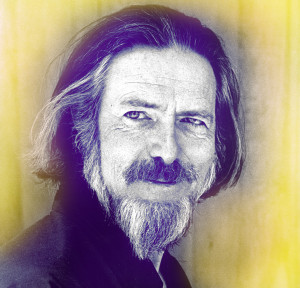How to Own Your Weakness: Alan Watts on the Confucian Concept of Jen and the Dangers of Self-Righteousness
INSPIRATIONAL, 23 Oct 2023
Maria Popova | The Marginalian – TRANSCEND Media Service
 A great tragedy of our time, this epoch of self-righteousness, is the zeal with which people would rather feel right than understand — the situation, the context, the motives and vulnerabilities behind the actions, the basic fact of the other.
A great tragedy of our time, this epoch of self-righteousness, is the zeal with which people would rather feel right than understand — the situation, the context, the motives and vulnerabilities behind the actions, the basic fact of the other.
Growling beneath it all is an aversion to our own imperfections — we would rather look away and toward the faults of others than fully step into our own shadow and embrace it with light. In so segregating our own nature, we abdicate our wholeness and cease being fully human.
How to rehumanize ourselves by owning our shadow is what Alan Watts (January 6, 1915–November 16, 1973) examines in some wonderful passages from Tao: The Watercourse Way (public library) — his final book, which he never fully finished before death took him one late-autumn day; it was posthumously published with the help of his friend Al Chung-liang Huang.
Watts writes:
At the head of all virtues Confucius put not righteousness (i), but human-heartedness (jen), which is not so much benevolence, as often translated, but being fully and honestly human.
[…]
A true human is not a model of righteousness, a prig or a prude, but recognizes that some failings are as necessary to genuine human nature as salt to stew.
A generation before Parker Palmer urged in his magnificent commencement address that you “take everything that’s bright and beautiful in you and introduce it to the shadow side of yourself” so that “the shadow’s power is put in service of the good,” Watts adds:
Merely righteous people are impossible to live with because they have no humor, do not allow the true human nature to be, and are dangerously unconscious of their own shadows. Like all legalists and busybodies, they are trying to put the world on a Procrustean bed of linear regulations so that they are unable to make reasonable compromises.
[…]
Trust in human nature is acceptance of the good-and-bad of it, and it is hard to trust those who do not admit their own weakness.
(It is worth noting that Tao: The Watercourse Way was itself a way of admitting, and remedying, a human weakness on the scale of society — a decade before Ursula K. Le Guin so brilliantly unsexed the universal pronoun, Watts becomes the first to propose, in a footnote, that the Confucian word jen, which is ungendered in Chinese but has traditionally been translated into English as “man-heartedness,” instead be translated as “human-heartedness” and that all instances of “man” as the universal pronoun be replaced with “human.”)
Complement with Joan Didion on learning not to mistake self-righteousness for morality and the psychologist turned pioneering artist Anne Truitt on the cure for our chronic self-righteousness, then revisit Watts on love and the only real antidote to fear, happiness and how to live with presence, the art of learning not to think in terms of gain or loss, and the salve for our existential loneliness.
_______________________________________
 My name is Maria Popova — a reader, a wonderer, and a lover of reality who makes sense of the world and herself through the essential inner dialogue that is the act of writing. The Marginalian (which bore the unbearable name Brain Pickings for its first 15 years) is my one-woman labor of love, exploring what it means to live a decent, inspired, substantive life of purpose and gladness. Founded in 2006 as a weekly email to seven friends, eventually brought online and now included in the Library of Congress permanent web archive, it is a record of my own becoming as a person — intellectually, creatively, spiritually, poetically — drawn from my extended marginalia on the search for meaning across literature, science, art, philosophy, and the various other tendrils of human thought and feeling. A private inquiry irradiated by the ultimate question, the great quickening of wonderment that binds us all: What is all this? (More…)
My name is Maria Popova — a reader, a wonderer, and a lover of reality who makes sense of the world and herself through the essential inner dialogue that is the act of writing. The Marginalian (which bore the unbearable name Brain Pickings for its first 15 years) is my one-woman labor of love, exploring what it means to live a decent, inspired, substantive life of purpose and gladness. Founded in 2006 as a weekly email to seven friends, eventually brought online and now included in the Library of Congress permanent web archive, it is a record of my own becoming as a person — intellectually, creatively, spiritually, poetically — drawn from my extended marginalia on the search for meaning across literature, science, art, philosophy, and the various other tendrils of human thought and feeling. A private inquiry irradiated by the ultimate question, the great quickening of wonderment that binds us all: What is all this? (More…)
Go to Original – themarginalian.org
Tags: Confucius, Inspirational, Life, Self-knowledge, Wisdom
DISCLAIMER: The statements, views and opinions expressed in pieces republished here are solely those of the authors and do not necessarily represent those of TMS. In accordance with title 17 U.S.C. section 107, this material is distributed without profit to those who have expressed a prior interest in receiving the included information for research and educational purposes. TMS has no affiliation whatsoever with the originator of this article nor is TMS endorsed or sponsored by the originator. “GO TO ORIGINAL” links are provided as a convenience to our readers and allow for verification of authenticity. However, as originating pages are often updated by their originating host sites, the versions posted may not match the versions our readers view when clicking the “GO TO ORIGINAL” links. This site contains copyrighted material the use of which has not always been specifically authorized by the copyright owner. We are making such material available in our efforts to advance understanding of environmental, political, human rights, economic, democracy, scientific, and social justice issues, etc. We believe this constitutes a ‘fair use’ of any such copyrighted material as provided for in section 107 of the US Copyright Law. In accordance with Title 17 U.S.C. Section 107, the material on this site is distributed without profit to those who have expressed a prior interest in receiving the included information for research and educational purposes. For more information go to: http://www.law.cornell.edu/uscode/17/107.shtml. If you wish to use copyrighted material from this site for purposes of your own that go beyond ‘fair use’, you must obtain permission from the copyright owner.
